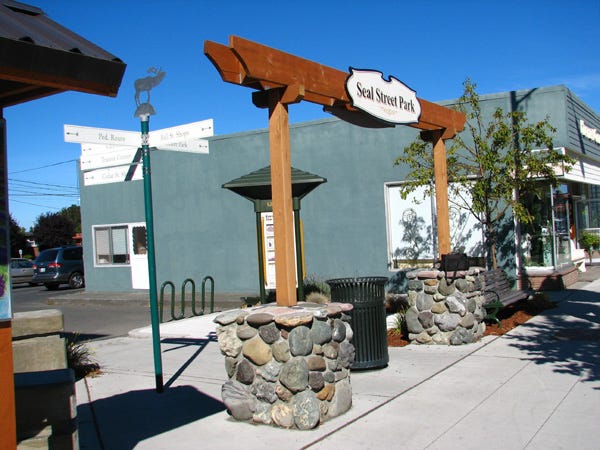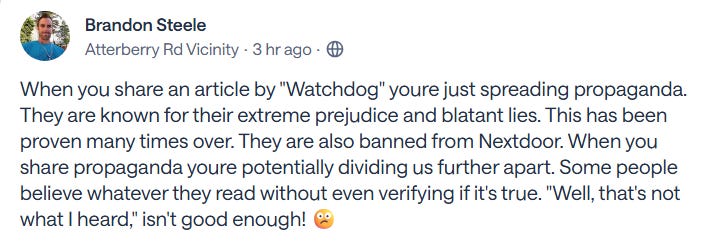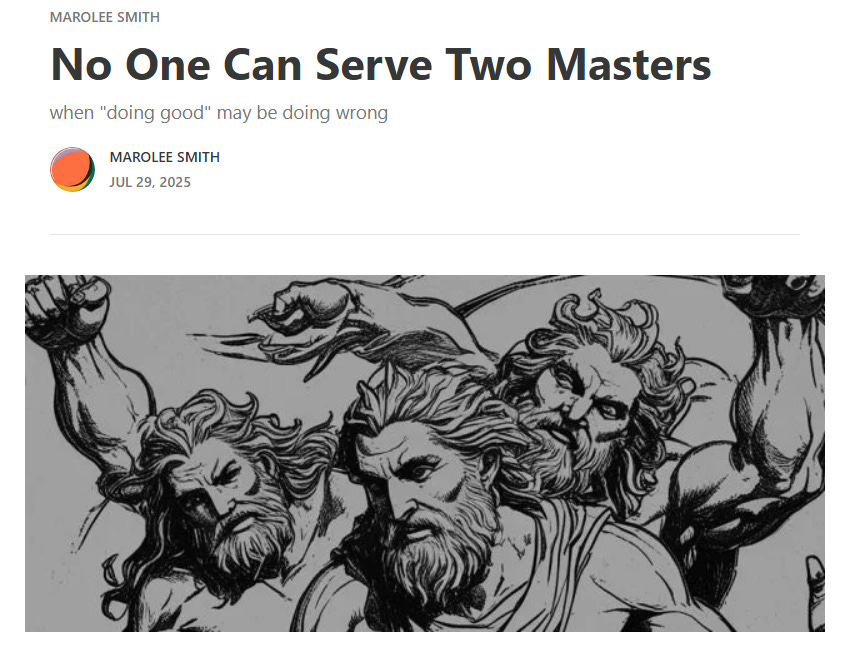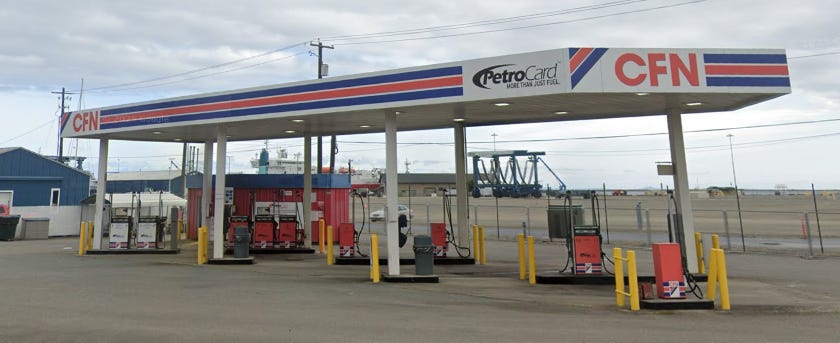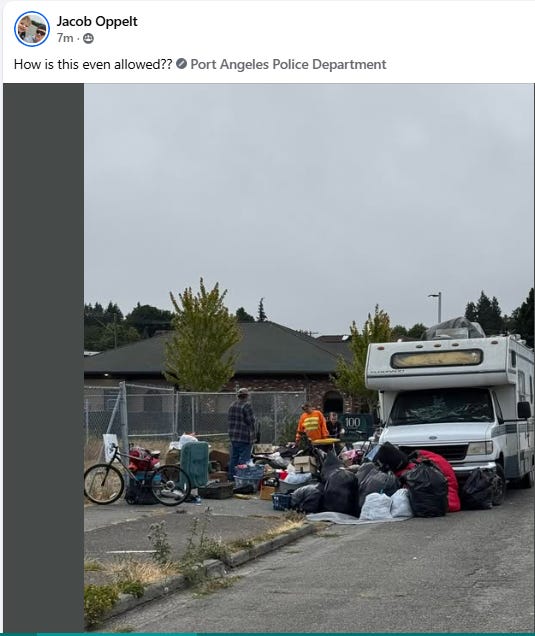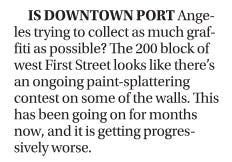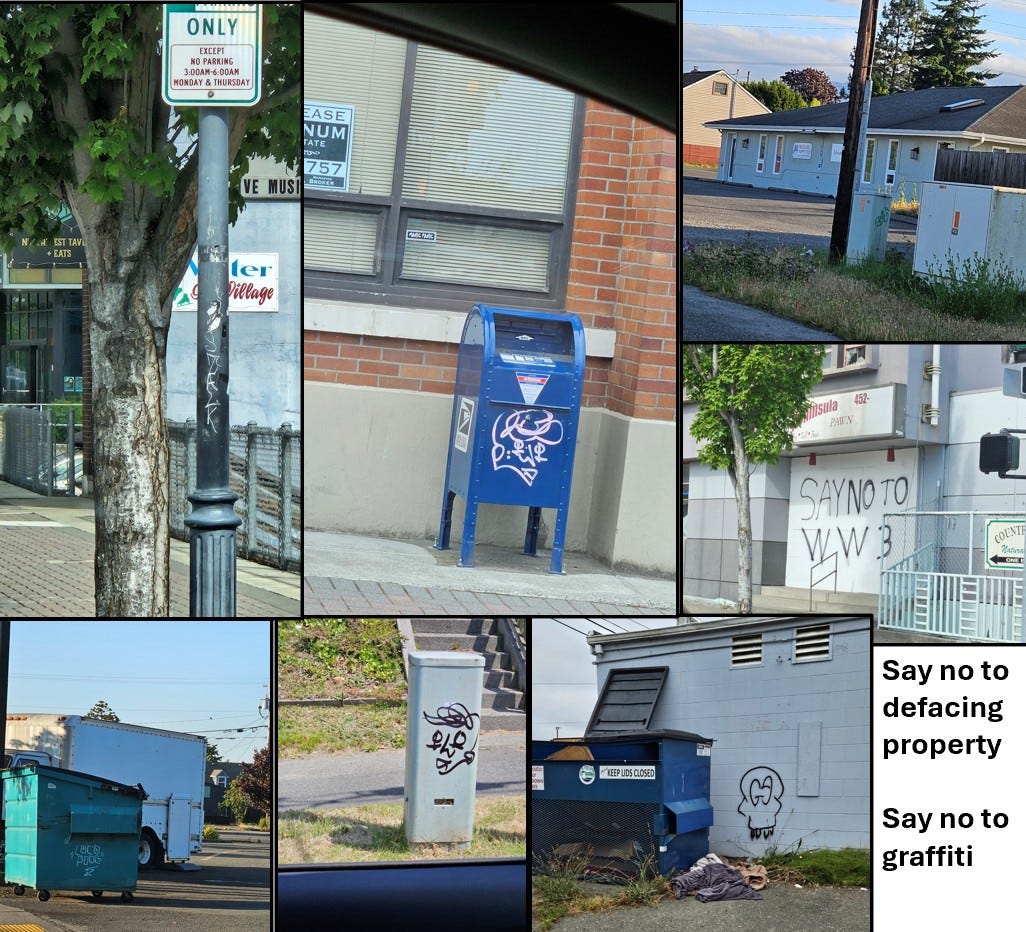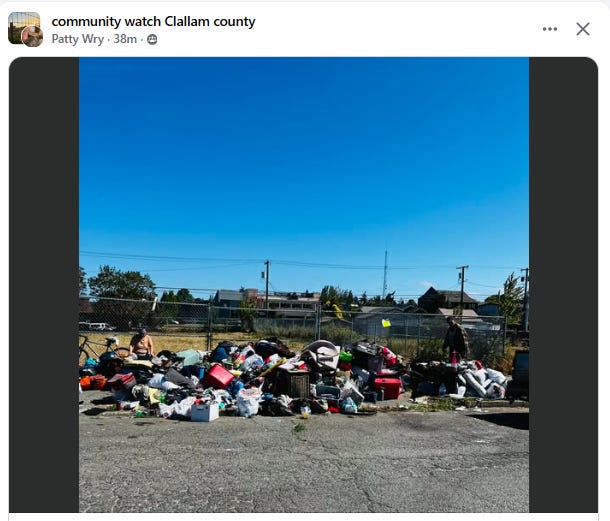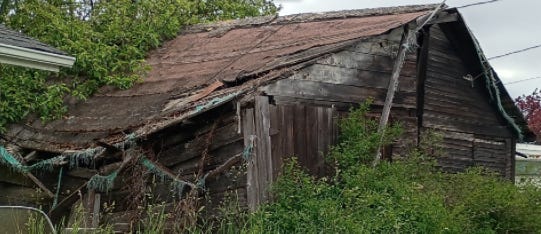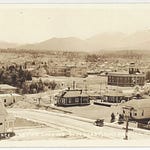From Seal Street Park safety concerns to PetroCard’s waterway spill, this week’s roundup exposes the growing gap between public promises and real priorities. Port Angeles candidates Marolee Smith Dvorak and James Rocklyn Taylor call for transparency and cleanup, while nonprofits like PBH and Habitat shift from housing to activism—with taxpayer dollars footing the bill. And Spokane’s budget collapse is a red flag. Clallam County could be next.
Seal Street Park update
Sequim city officials are taking steps to address safety concerns at Seal Street Park raised by the Women’s Resilience Group. Councilmember Kelly Burger clarified that after public testimony on July 14, the City Council immediately discussed the issue and directed staff to explore signage and coordinate with the police department. Police Chief Hill and his team have since increased patrols during known meeting times, met with outreach groups, and spoken directly with individuals at the park.
The city’s action plan includes law enforcement visibility, collaboration with social services, and encouraging real-time incident reporting. While legal limits around signage and panhandling complicate enforcement, officials are working within state law to improve safety. You can read Councilmember Burger’s full response which is included at the end of the original article.
“Propaganda”? Not quite. But thanks for the feedback.
A commenter on Nextdoor said sharing CC Watchdog is “spreading propaganda.” Let’s talk about that.
Yes, this is an opinion blog. I try to explain how I develop my opinions by providing supporting facts. Yes, I sometimes get things wrong—and when I do, I correct them. For example, Councilmember Kelly Burger said important information about the Seal Street Park issue that was omitted, and we included his full response in yesterday’s article.
Disagreement is not misinformation. It’s just another angle—and this platform exists to make sure it’s heard.
Marolee Smith Dvorak questions the NGO machine
Port Angeles City Council candidate Marolee Smith Dvorak has written a bold and thought-provoking piece that asks a simple but powerful question: Can elected officials truly serve the public if they’re also serving on nonprofit boards? Her answer is a resounding no—and she backs it up with legal insight, ethical reasoning, and a deep understanding of fiduciary duty.
In a time when nonprofits wield enormous influence over public policy and budgets, Dvorak challenges the assumption that “good intentions” are enough. She explores how divided loyalties, lack of transparency, and the appearance of impropriety can quietly erode public trust—even when no laws are technically broken.
Whether you agree with her or not, this is the kind of conversation Port Angeles needs. It’s sharp, principled, and refreshingly honest. Read it, reflect on it, and decide for yourself here.
Water crisis meets financial neglect
PetroCard, a Native-owned fuel distributor, is under fire in Port Angeles for both environmental and financial missteps. A recent tanker crash into Indian Creek—which drains into Port Angeles’ main water source—sparked a citywide water crisis and raised questions about accountability, especially given PetroCard’s Minority Business Enterprise status.
Meanwhile, the company’s contract with the port is faltering. PetroCard allowed $60,000 in unpaid user debt to accumulate and failed to market the Boat Haven, a role the port had to take over. Despite high occupancy rates, trust in PetroCard is eroding on multiple fronts.
It’s getting harder to ignore
Charity golf: tee off for uncompensated care
Peninsula Behavioral Health (PBH), the NGO behind Northview—a luxury homeless housing project complete with EV charging stations, dishwashers, a rooftop terrace, and even a dog-washing station—is hosting a charity golf tournament this October to help “bridge the gap in uncompensated care.”
PBH followed up with CC Watchdog and clarified: none of the tournament proceeds will go toward Northview. The luxury homeless housing project is fully funded and on budget. So why is PBH still soliciting donations specifically for Northview? After some prodding, they acknowledged the donation link would be removed.
A real plan to clean up Port Angeles
In a recent article, Port Angeles City Council candidate James Rocklyn Taylor lays out a structured, city-led process to clean up abandoned and dangerous properties. His plan balances public safety, property rights, and cost recovery, offering deadlines, enforcement tools, and insurance guidance.
It’s not flashy, but it’s smart—exactly the kind of approach our city desperately needs more of. Read his essay here.
Habitat for Humanity: When did it become social services?
Once known for building homes with sweat equity and volunteer labor, Habitat for Humanity has transformed into a multilingual, equity-driven, community services NGO. Some local affiliates now offer translation assistance for immigration documents, equity counseling, and BIPOC community integration programs.
One video proudly says, “We’re considered community developers now, not just home builders.”
That may be noble—but is it what donors think they are supporting with their land and dollars?
No, I don’t get paid to do this
A Nextdoor commenter recently accused me of profiting off CC Watchdog.
I’ve never made a cent. There are no ads and no paid subscriptions.
This blog exists to shine a light on local decisions that affect real people—and I don’t need a paycheck to care about that.
Spokane overspent on homelessness—now they can’t pay the bills
Spokane drained $6.1 million from its jail fund to pay for homelessness programs—and now it’s broke, sitting on $1.3 million in unpaid jail bills and facing cuts to police and fire services. Despite the spending, homelessness has worsened. The city’s general fund is $13.4 million in deficit, and the crisis is deepening.
Sound familiar? Clallam County is heading the same way: luxury homeless housing, grant-chasing nonprofits, and almost no public reporting. Spokane waited too long to demand accountability. We shouldn’t. For a deeper look at Spokane’s fiscal fallout, check out The Center Square’s full report.



